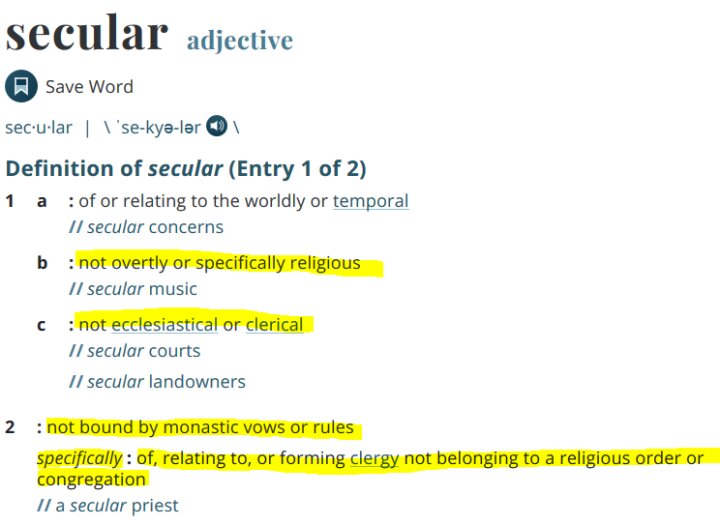@
Speedyman Not really, funny how you're misinformed. The U.S. first amendment:
Congress shall make no law respecting an establishment of religion, or prohibiting the free exercise thereof; or abridging the freedom of speech, or of the press; or the right of the people peaceably to assemble, and to petition the government for a redress of grievances.
This clause not only forbids the government from establishing an official religion, but also prohibits government actions that unduly favor one religion over another. It also prohibits the government from unduly preferring religion over non-religion, or non-religion over religion. You can read more about it on here:
https://www.law.cornell.edu/wex/establishment_clauseSpeaking of Europe, let me take Italy, that has similar clauses and has one of the most Catholic populations, also historically:
Art. 7: The State and the Catholic Church are independent and sovereign, eachwithin its own sphere. Their relations are regulated by the Lateran pacts. Amendments to such Pacts which are accepted by both parties shall not require the procedure of constitutional amendments.
Art. 8: All religious denominations are equally free before the law.Denominations other than Catholicism have the right to self-organisation according to their own statutes, provided these do not conflict with Italian law. Their relations with the State are regulated by law, based on agreements with their respective representatives.
Art. 9: The Republic promotes the development of culture and of scientific and technical research.It safeguards natural landscape and the historical and artistic heritage of the Nation.
None of the constitutions, also, mention the existence or recognizement of a creator.
Also, as per the clauses above, are both technically "secular":





